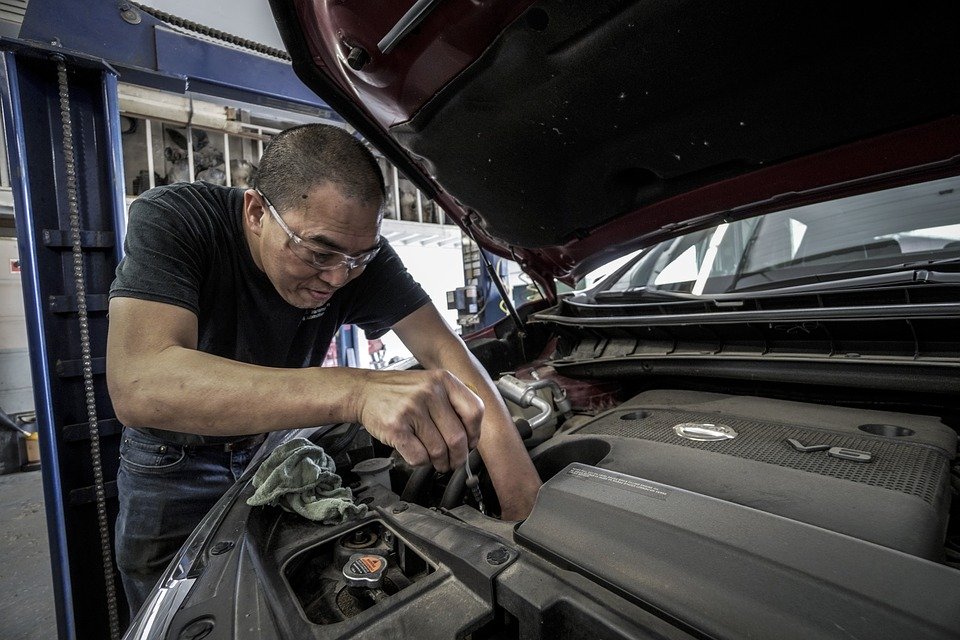In the past, automotive tune-ups were recommended far more often than they are with today’s modern cars and trucks. However, a tune-up on your car or truck can make a tremendous difference in many aspects of your use and enjoyment of a vehicle. This article outlines the importance of automotive tune-ups.
Tune-Ups Are Essential
Automotive tune-ups are one of the essential maintenance procedures that will help ensure your vehicle’s optimal performance, efficiency, and longevity. As such, a car tune-up involves inspecting, adjusting, and replacing various components to keep your car running smoothly. Here’s a breakdown of the importance of car tune-ups and some of what you can expect from having this maintenance performed when needed:
Improved Fuel Efficiency: During a tune-up, the technician checks and adjusts the fuel and ignition systems. Properly tuned systems ensure that your engine burns fuel efficiently, which can lead to better gas mileage and reduced fuel consumption.
Optimal Performance: Regular tune-ups help maintain your car’s engine power and overall performance. Ignition timing, spark plug condition, and air-fuel mixture are all fine-tuned to ensure smooth acceleration, responsive throttle, and reliable power delivery.
Extended Engine Life: By replacing worn-out parts and addressing minor issues early, tune-ups can prevent more significant problems from developing. This proactive approach helps extend the life of your engine and other components, saving you money on major repairs.
Reduced Emissions: A properly tuned engine emits fewer harmful pollutants and greenhouse gases. This is not only better for the environment but can also help you pass emissions tests that may be required by your local regulations.
Automotive Tune-ups Prevent and Protect
Prevention of Major Repairs: Regular tune-ups allow technicians to catch and address small problems before they escalate into more expensive and complex issues. For example, replacing a worn-out belt or a faulty sensor during a tune-up can prevent more substantial damage to the engine or other systems.
Enhanced Safety: Your car’s brakes, steering, and suspension components are often inspected during a tune-up. Detecting and fixing problems in these areas ensures that your vehicle operates safely and handles well on the road.
Smooth and Consistent Operation: Tuning up your car helps maintain a smooth and consistent driving experience. This includes addressing issues like rough idling, stalling, and poor acceleration, which can impact your driving comfort and safety.
Warranty and Resale
Preservation of Warranty: If your car is under warranty, regular tune-ups may be required to keep the warranty valid. Following the manufacturer’s recommended maintenance schedule ensures that you comply with warranty terms.
Resale Value: A well-maintained car with a documented history of regular tune-ups can command a higher resale value. Prospective buyers are often willing to pay more for a vehicle that has been properly cared for and is less likely to have hidden mechanical problems.
Peace of Mind: Knowing that your car is in good condition and operating optimally provides peace of mind while driving. Regular tune-ups can help you avoid breakdowns and unexpected repairs, reducing stress and inconvenience.
It’s Up To You
Concerning warranty and resale value, it is important to maintain a record of all maintenance procedures performed on your vehicle. This will help to back up any claims made by you regarding the proper maintenance of your vehicle.
In summary, the importance of automotive tune-ups can be understated. We’ve shown how car and truck tune-ups play a crucial role in maintaining your vehicle’s performance, efficiency, and reliability. However, it is up to you to make it happen. By investing in regular tune-ups, you’re not only ensuring a smoother driving experience but also safeguarding your car’s long-term health and value.